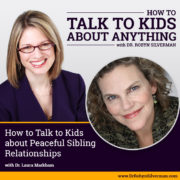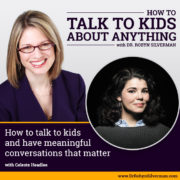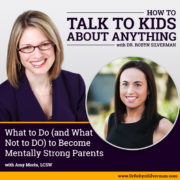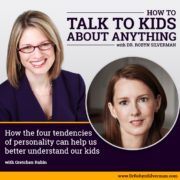Special Guest: Gretchen Rubin
We all have different kinds of kids that we parent, teach or coach. Think about it. Some seem easy as pie and others drive you absolutely bonkers. You give one kid a responsibility or perhaps you help one kid set a goal- and he’s on it. Committed and ready to whatever it takes to follow through. He’s off and running and you don’t need to do anything to help him make it happen. Wow! What a great parent or teacher you must be! Then- you give another kid a responsibility or help him set a goal and he might question you for an hour about why he has to do it this way or that and every who, what, where, when and how it will be done as well. Still other kids may need regular accountability to ensure progress or maybe you even know a few that may resist moving forward no matter what you try. Have I described the kids in your life yet? Why in the world can setting expectations, giving responsibilities or helping kids set goals work so easily for some kids and seem like a lesson in futility for others? Turns out, you aren’t crazy—there’s a reason for this. It comes down to a person’s tendency. And you know what? You have them too.
Gretchen Rubin is the author of several books, including the blockbuster bestsellers Better Than Before and The Happiness Project. Perhaps you’ve seen her on Oprah’s Super Soul Sunday or give her Ted Talk or give expert happiness advice on the Today Show or Good Morning America. She also has a very popular podcast that you may have heard—called Happier with Gretchen Rubin, where she discusses good habits and happiness with her sister Elizabeth Craft. Her new book, The Four Tendencies, reveals a personality framework she’s created that that explains that people fall into four types: Upholders, Questioners, Obligers, and Rebels. And we are going to talk all about it today.




